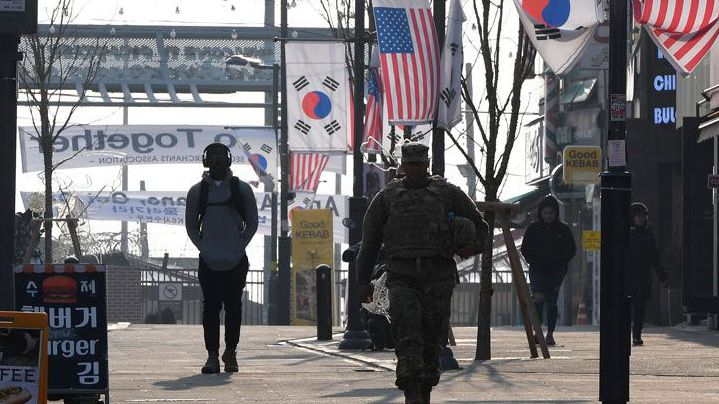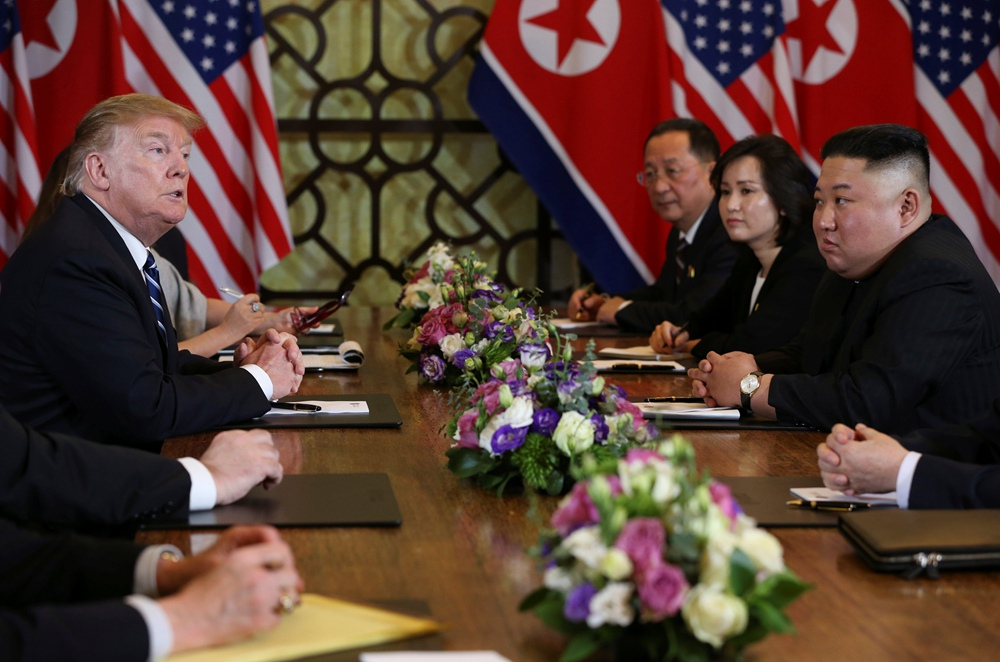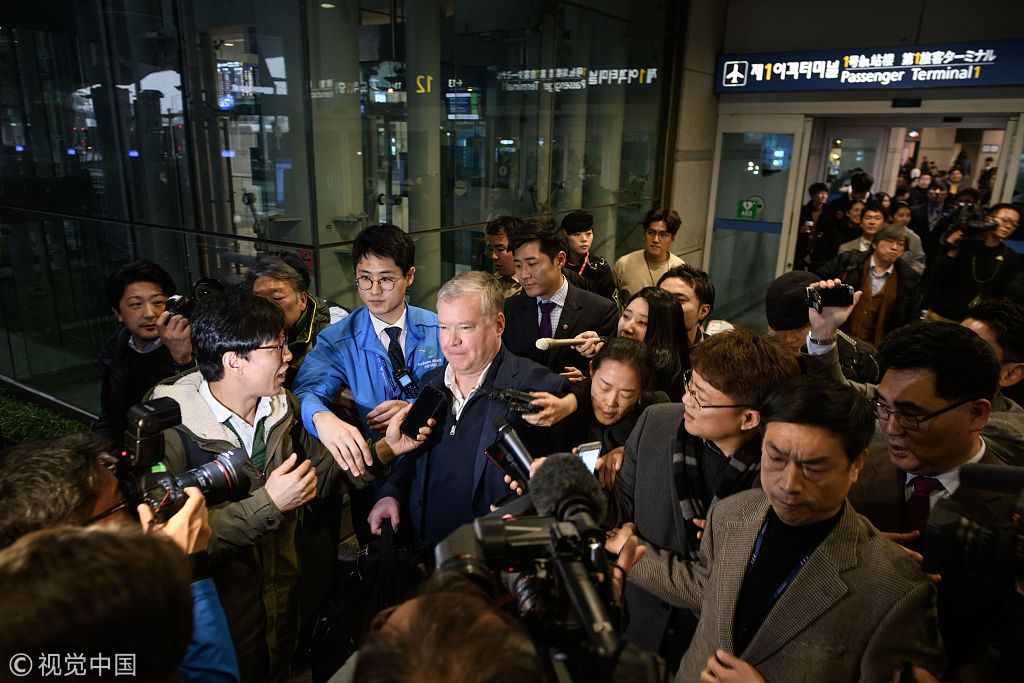
Asia Pacific
14:01, 14-Mar-2019
U.S., ROK soldiers ready for crisis, USFK chief says after joint drill
Updated
14:40, 14-Mar-2019
CGTN

"Every senior leader in the Republic of Korea-United States military alliance is absolutely committed to ensure that our force is ready for any requirements to deal with crisis or any potential hostilities," said U.S. Forces Korea (USFK) Commander Gen. Robert Abrams on Wednesday, one day after the duo closed up the scaled-down military exercise.
Seoul and Washington concluded their week-long "Dong Maeng" (Korean for alliance) exercise on Tuesday, a much smaller scale military drill in place of their decades-long massive springtime war games, codenamed Key Resolve and Foal Eagle, which has also been denounced by Pyongyang as a dress rehearsal for northward invasion.

Foal Eagle in 2017. /VCG Photo
Foal Eagle in 2017. /VCG Photo
The decision was made to back diplomatic efforts in "reducing tensions and achieving the complete denuclearization of the Korean Peninsula through a final, full verified method," according to the joint statement released by the Pentagon and Seoul's defense ministry earlier in the month.
Read more:
"You can sleep well tonight knowing that the combined force is ready," Abrams told ROK's official Yonhap news agency, inferring that the downsized drill does not mean that the U.S.-ROK military alliance is not ready for possible threats from Pyongyang.
2nd Trump-Kim summit ends with 'no deal'
This brought back the second summit between U.S. President Donald Trump and Kim Jong Un, leader of the Democratic People's Republic of Korea (DPRK), in Hanoi, Vietnam, which wrapped up early with no clear gains on sanctions relief or solid commitment towards denuclearization. The pair even called off their lunch after failure to strike a deal.

DPRK leader Kim Jong Un (R1) listens as U.S. President Donald Trump (L1) speaks during the extended bilateral meeting during their summit in Hanoi, Vietnam, February 28, 2019. /Reuters Photo
DPRK leader Kim Jong Un (R1) listens as U.S. President Donald Trump (L1) speaks during the extended bilateral meeting during their summit in Hanoi, Vietnam, February 28, 2019. /Reuters Photo
Washington's sanctions against Pyongyang remain the sticking point. Kim has agreed to dismantle the country's main nuclear facility at Yongbyon, but under the conditions of sanction relief.
"They were willing to denuke a large portion of the areas that we wanted, but we couldn't give up all of the sanctions for that," Trump said at a press conference after their meeting. "So we continue to work and we'll see, but we had to walk away from that particular suggestion."
Read more:
Washington urges efforts from the UN
According to U.S. State Department, Special Representative for DPRK Stephen Biegun is set to travel to New York on Thursday and meet United Nations Security Council (UNSC) members on DPRK.
He will discuss "efforts to ensure full implementation" of UNSC sanctions on Pyongyang until its "final, fully verified denuclearization," the statement read.

U.S. envoy for DPRK Stephen Biegun (C) arrives at Incheon International Airport in preparation for the second summit between DPRK leader Kim Jong Un and U.S. President Donald Trump, on February 3, 2019. /VCG Photo
U.S. envoy for DPRK Stephen Biegun (C) arrives at Incheon International Airport in preparation for the second summit between DPRK leader Kim Jong Un and U.S. President Donald Trump, on February 3, 2019. /VCG Photo
Washington stands firm, calling for complete denuclearization before any sanction removal, with Biegun's announcement this week that the U.S will not lift sanctions until the DPRK abandons its weapons of mass destruction program.
U.S. Secretary of State Mike Pompeo also met with UN Secretary-General Antonio Guterres on Wednesday in Washington to discuss "the denuclearization of the Korean Peninsula" among other matters, the department said in a separate note.

SITEMAP
Copyright © 2018 CGTN. Beijing ICP prepared NO.16065310-3
Copyright © 2018 CGTN. Beijing ICP prepared NO.16065310-3